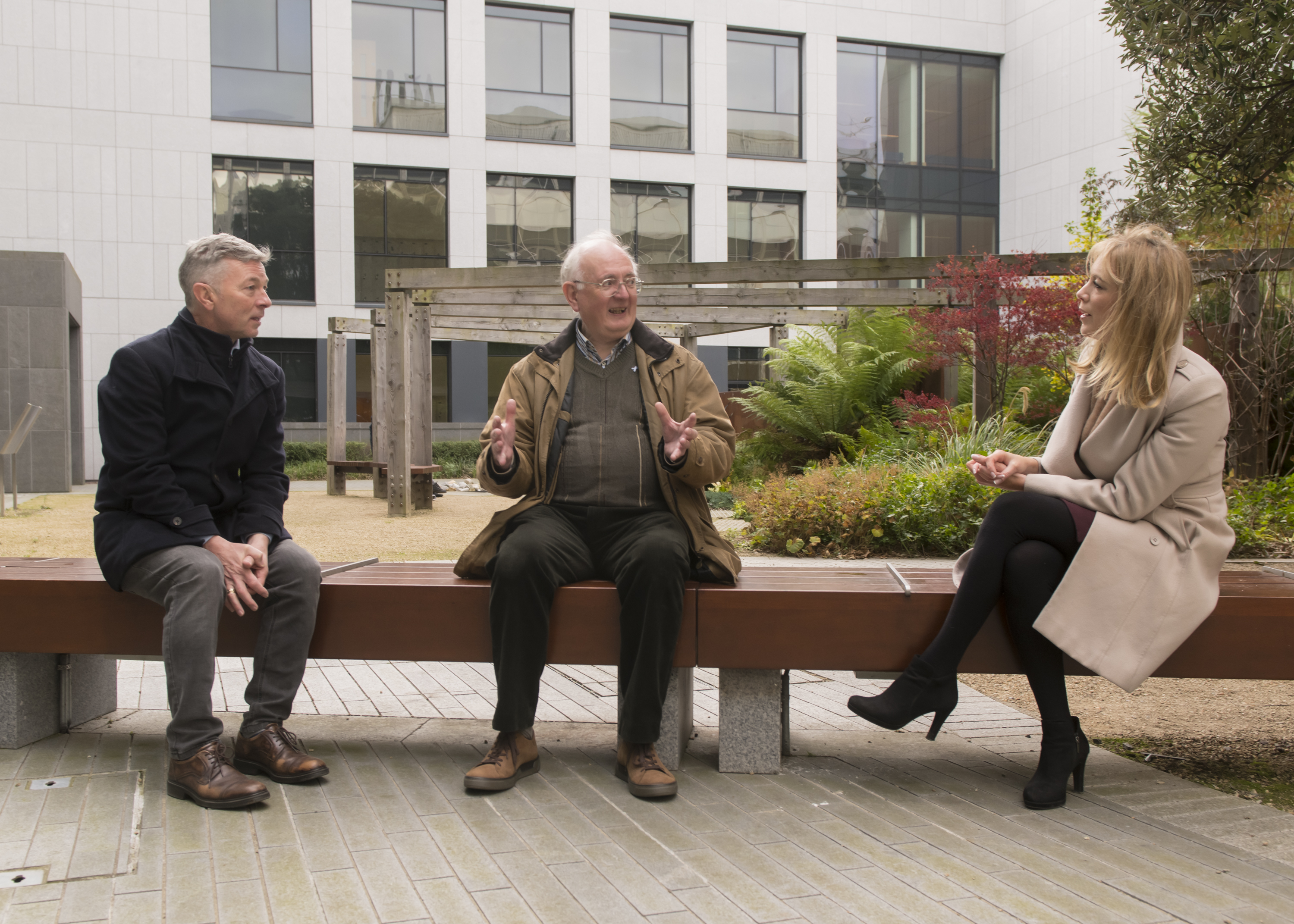Participating in Cancer Research Projects
Opportunities to get involved in cancer research projects arise throughout the year. Researchers are seeking participants at all stages of their cancer diagnosis, or those supporting a person affected by cancer. Your participation is so valuable to informing new treatments and care of people affected by cancer.
What is involved in becoming a research participant?
Any research project listed on the Irish Cancer Society website will include ‘Project Contact Details’. If you find a research project that is of interest, you can reach out to the research project team directly using the provided email address or phone number. If the research project you are interested in has an online survey, you can use the ‘survey link’ provided to bring you straight to the survey. You may also be able to contact the research project team directly if you would prefer to complete a paper version of the survey.
To become a research participant, you must properly understand what you are being asked to take part in and be given enough information about the study including any potential risks and benefits. You must be given time to consider your participation and be given the opportunity to ask questions. When you have been given all this information, you can choose to take part (give consent), choose not to take part (refuse consent), or choose to consent to specific elements of the study (and not others). There are many ways that you can get all the information you need on a project before you decide to become a research participant. Some documents you might receive are: a letter of invitation; a research participant information leaflet; a link to the research project website; evidence that an ethics committee has approved the project; a poster or advertisement; a research participant consent form.
[Adapted from HSE National Policy for Consent in Health and Social Care Research].
You can decide to withdraw from a research study at any time. Choosing to withdraw from a study does not have any consequences and will not affect any usual care you receive from your healthcare team (e.g., GP, Consultant, Nurse). If you decide to withdraw as a participant, you can also request that all your personal information and any data collected from you are deleted. This means that your information cannot be used as part of the research project. Alternatively, you can withdraw from the study and consent to researchers using any information that has been collected up to the date of your withdrawal.
If you have any concerns about the research project, you can reach out to the project team directly. Their contact details should be included on the patient information leaflet/consent form that was provided to you at the start of the project. If you do not feel comfortable speaking to the project research team and would like to contact a neutral third party, you can reach out the research ethics committee who oversee the research. Details for the relevant ethics committee should also be included on the patient information leaflet/consent form.

Cancer Research Projects Seeking Participants
We are doing a study to learn how prostate cancer treatment affects the sexual health and wellbeing of patients and their partners. To do this, we have created an anonymous online survey. The survey asks about your experiences, including how sexual side effects were explained and any support you were given. It will take about 20 minutes to complete. The questions are personal, and some might feel uncomfortable. You don’t have to answer anything you don’t want to, and you can take breaks and come back to it later.
This study was created with the help of patients, their partners, and healthcare experts to make sure the questions are fair and useful. By taking part, you will help us understand how to improve care and support for people affected by prostate cancer in Ireland and Northern Ireland. We know the questions might feel upsetting or difficult for some people. Your answers will stay private and anonymous, and no one will know they came from you. If you are 18 or older and a patient treated for prostate cancer or the partner of someone treated for prostate cancer, we would really value your input. Your answers will help us make things better for others in the future. Thank you for considering helping us with this important study.
Links to Survey:
Project Contact Details:
- Martin Sweeney - proact@cancertrials.ie
Accepting Participants Until:
- 30 May 2025
Calling for Patients, Healthcare Providers and Technology Developers with Remote Monitoring Experience!
Who are we? Prof Paul O’Connor and Mrs Sara Cucurachi at the University of Galway. What’s this study about? We aim to gain insights from those who have firsthand experience with remote monitoring models to understand the real-world challenges and benefits of this innovative model of care. Who we’re looking for: Patients who have received care through a remote monitoring model; Healthcare providers who have experience working with remote monitoring models; Technology developers who have experience in developing remote monitoring models. What are you required to do? We’re inviting participants for a brief virtual interview on MS Teams (30-40 mins) at a time of their convenience to share their experiences. As a thank you for your time, you’ll receive a 25 euro One4All voucher. Interested in sharing your story? Your experiences could be instrumental in shaping the future of virtual healthcare delivery!
Project Contact Details:
- Sarah Cucurachi- sara.cucurachi@universityofgalway.ie
Accepting Participants Until:
- Ongoing

